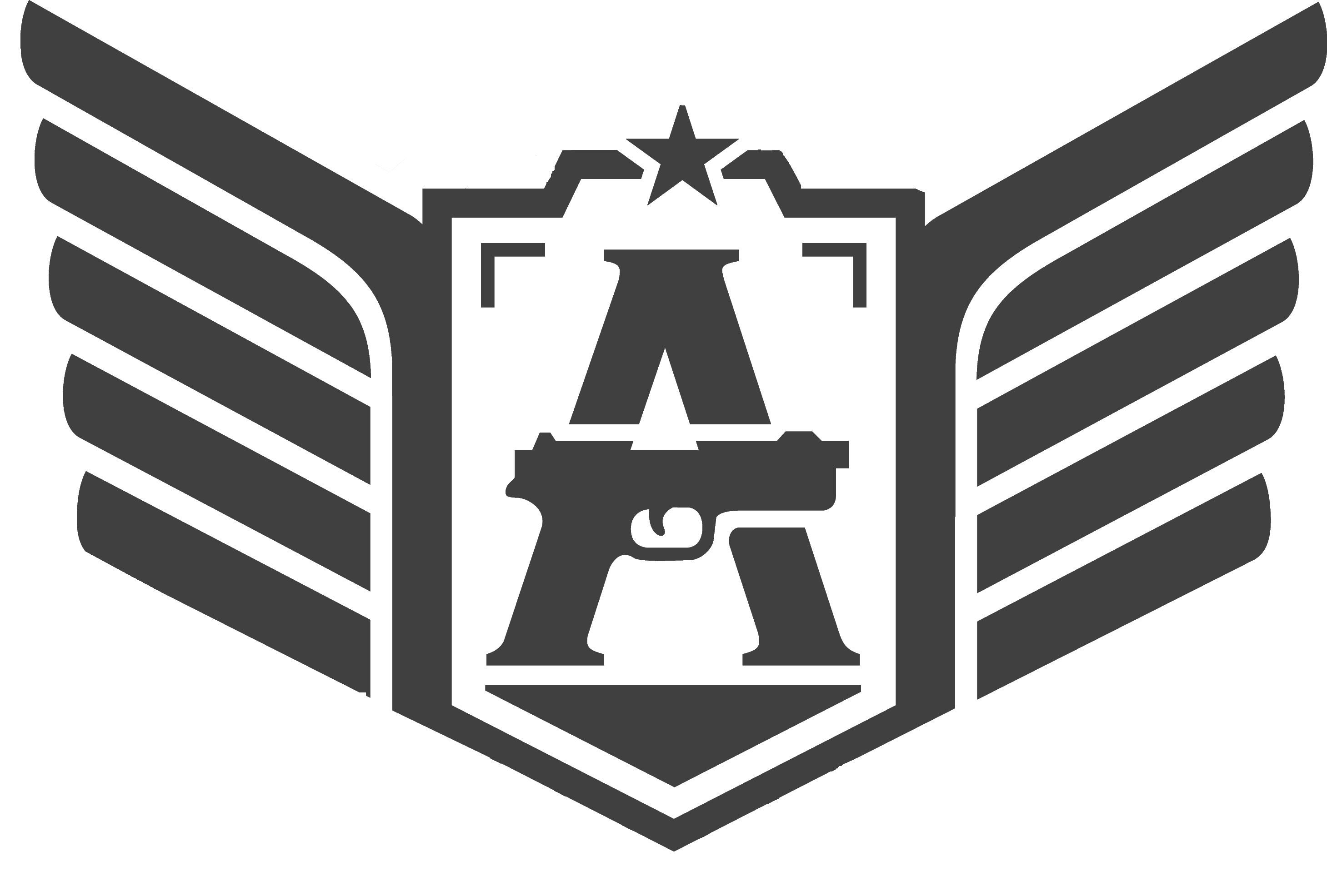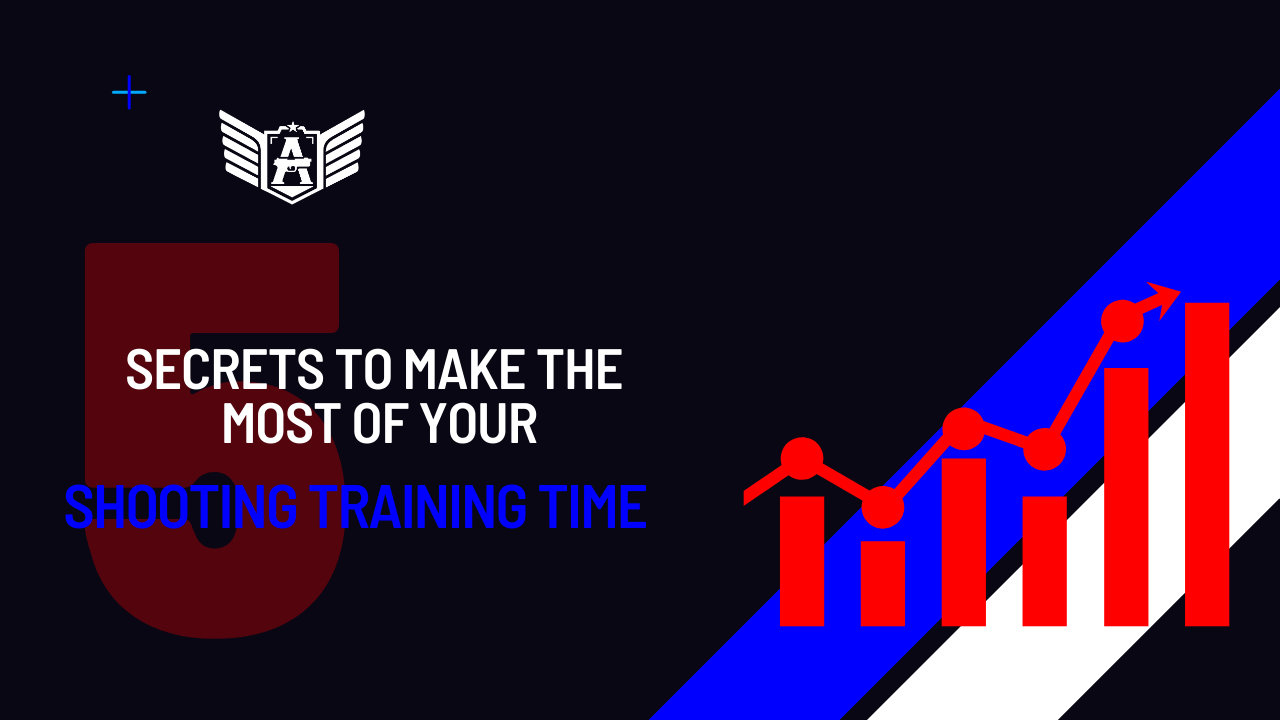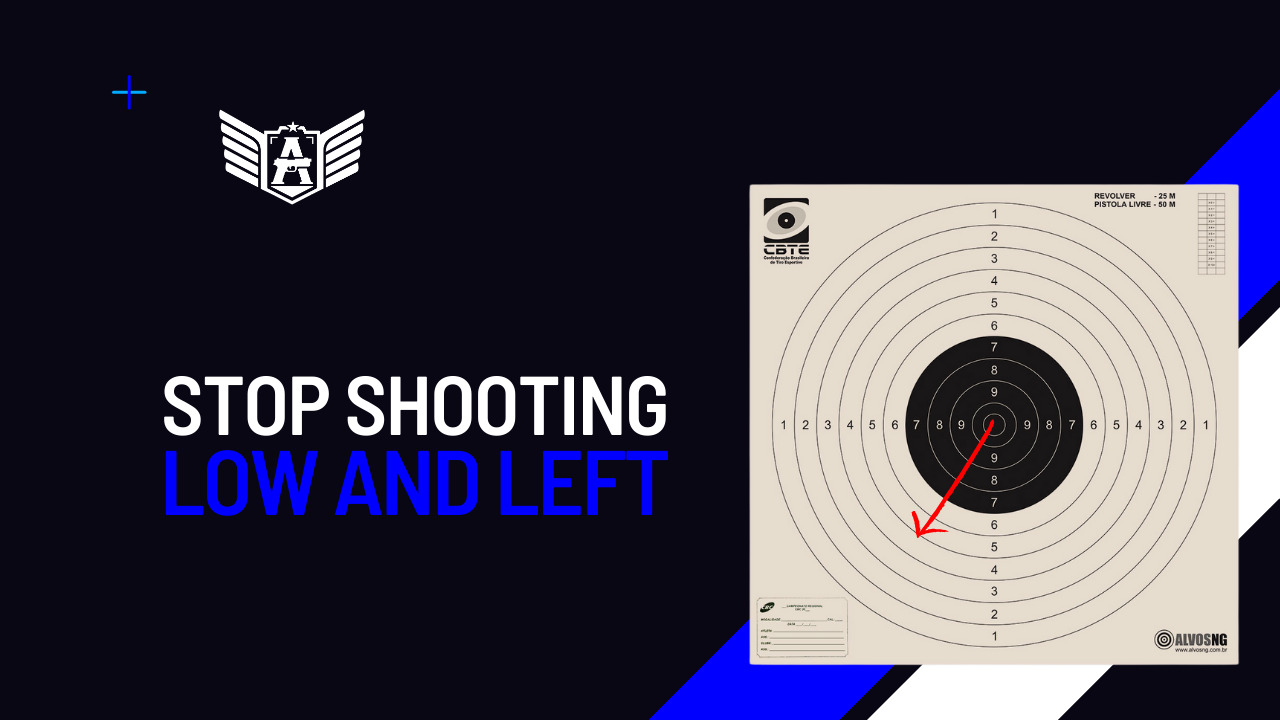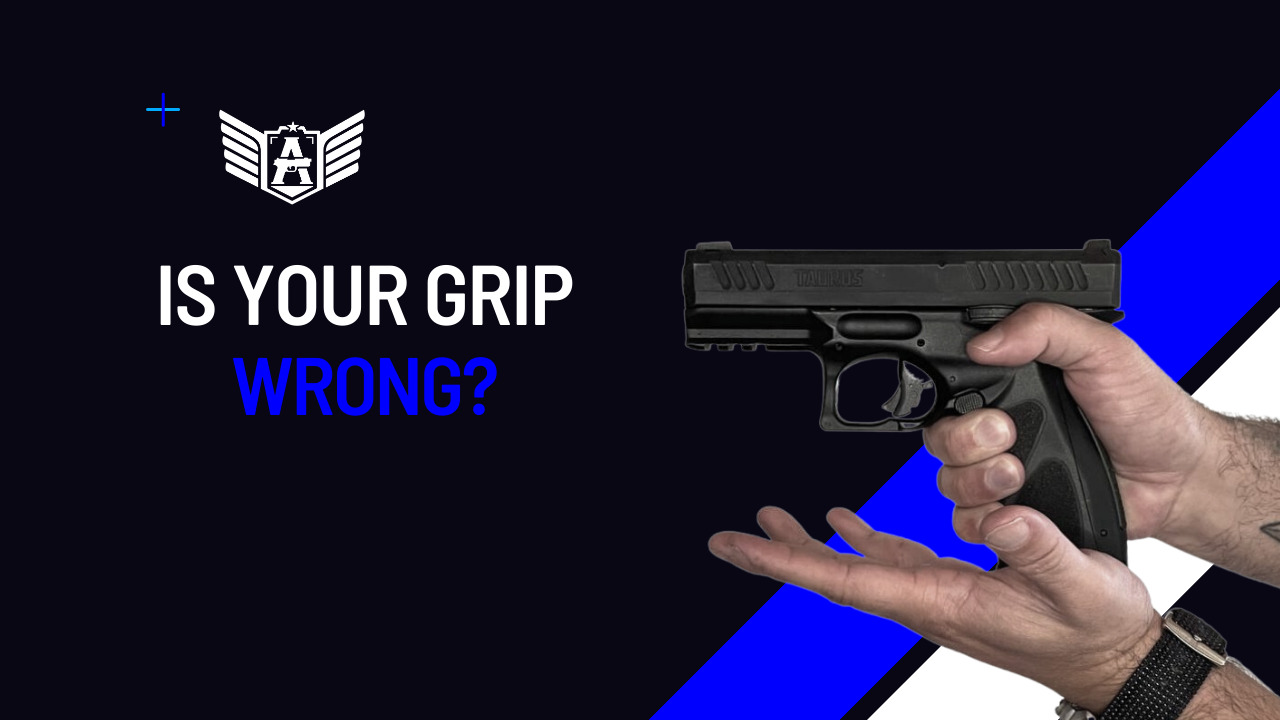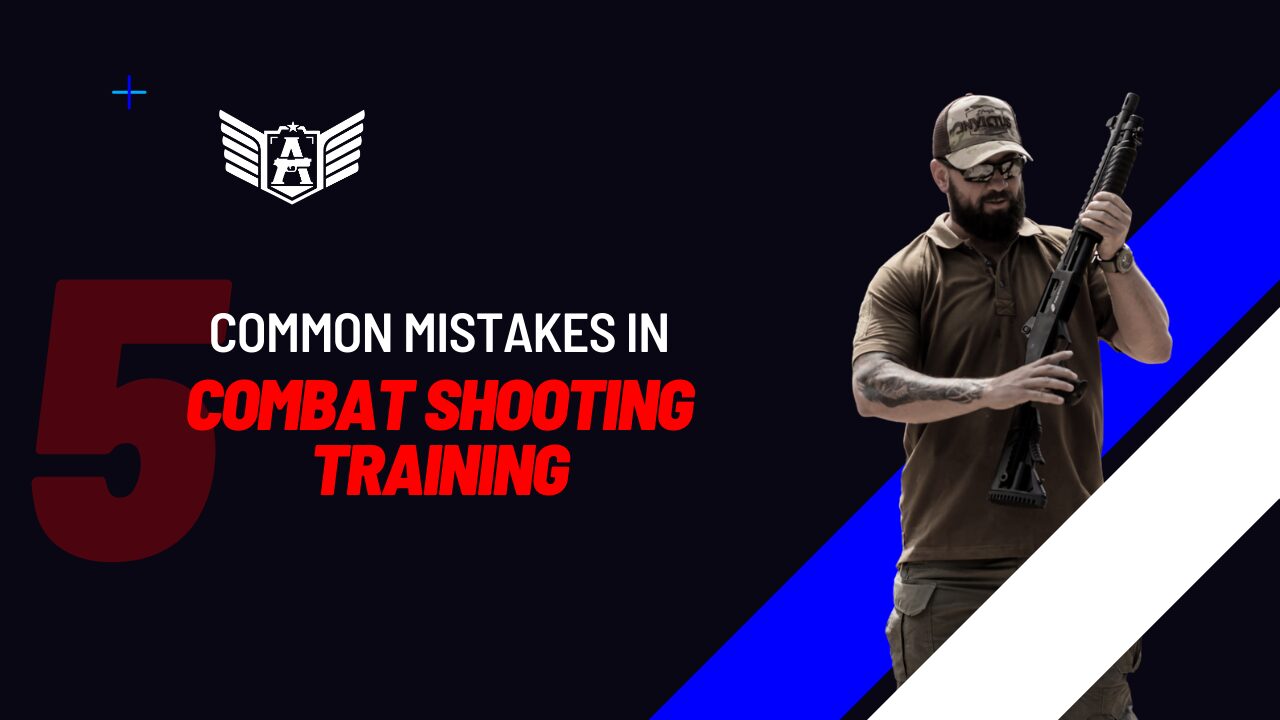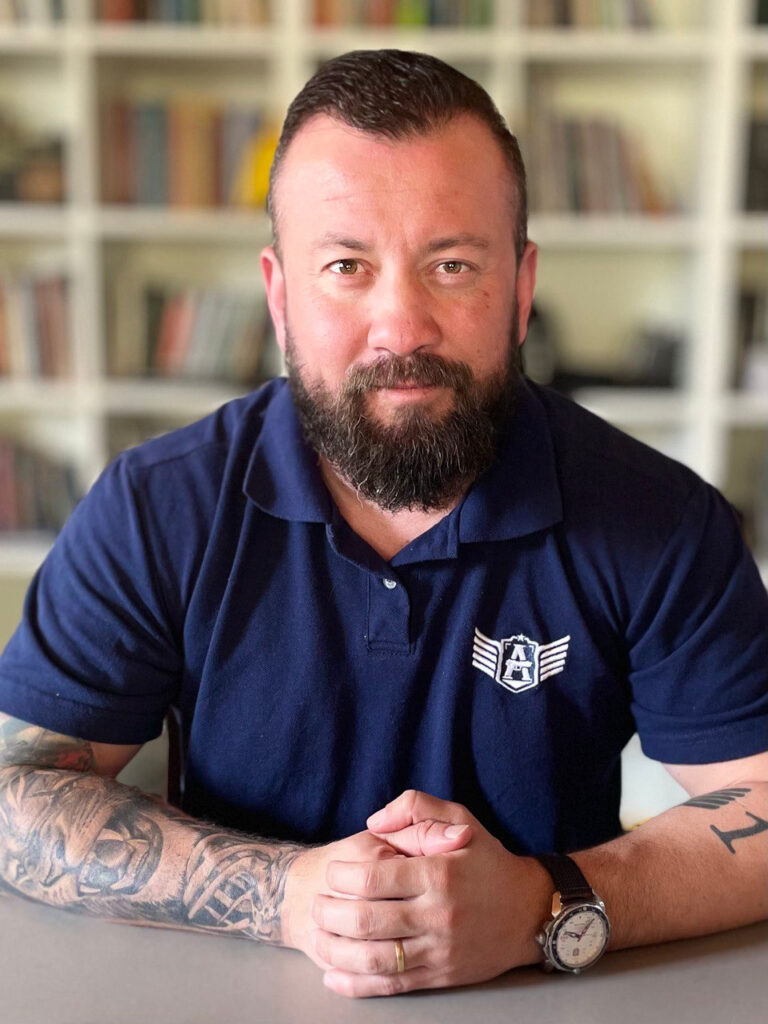
Imagine a high-performance athlete arriving at his training ground. Is the behavior of someone who has developed to the limit of their goals random, thoughtless, occasional? Does what one does during training sessions directly impact their results? What are people doing most of the time at shooting ranges? I bring you 5 secrets to make the most of your shooting training time with suggestions for habit changes that will save time and increase your performance in combat shooting. Check it out.
- Make the most of your time
As a former owner of two shooting ranges, a gun store, and a full-time armed combat instructor, I always considered my position truly privileged when it comes to training opportunities. It was part of my obligation to wake up at 5:30 and focus on firearms until 10 at night. I always had easy access to ranges, guns, and ammunition. Ideal world, right?
Upon self-analysis, asking myself, “Lucas, how’s your training frequency?” I realized that I wasn’t training as much as I would like, or as much as I should. The next inevitable question is: If I, having all the opportunities I have, living exclusively in the world of armed combat, didn’t train as much as I should or as much as I would like, IMAGINE THE REST OF THE WORLD!?
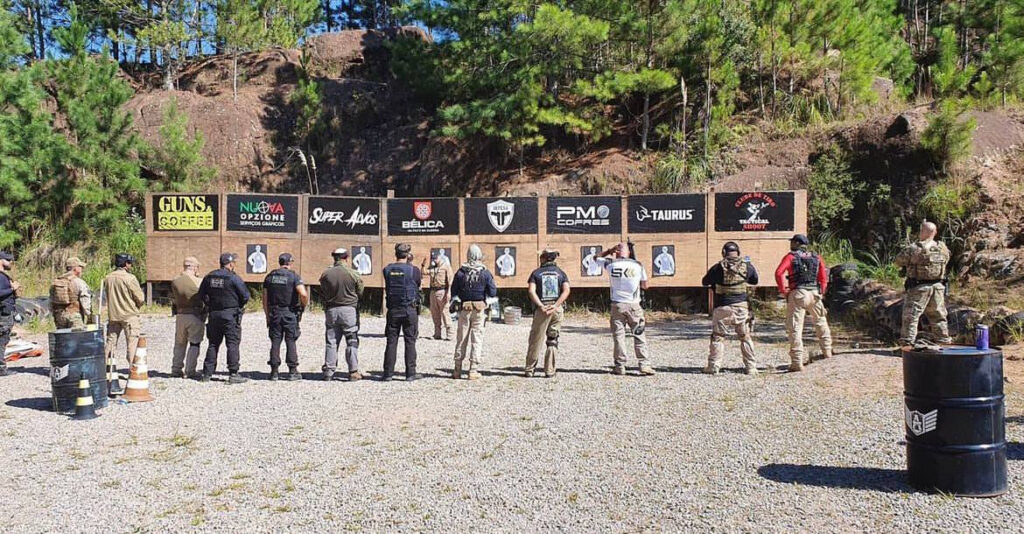
Obviously, for a normal person, a lawyer, a doctor, a dentist, or a businessman, with their normal weekly workload, it is relatively challenging to impose an ideal training routine from the perspective of combat shooting learning. So, how do these people actually develop enough skills to face a lethal threat when necessary? Make every moment with the gun in hand count. Don’t waste training or learning opportunities. If you’re at the range: train. If you’re facing the instructor: learn. If you’re at home with the gun in hand: do your dry-fire practice.
Your work, family, and leisure routine obviously need their space in your schedule, so inevitably your time with a gun in hand is extremely scarce. And this applies even to police, military, and private security professionals. Make your time worthwhile.
- Don’t waste dry fire
“Unload, show clear, click.” Ever tried counting how many times you press the trigger exclusively for safety checks during a training session? 5? 10? 50? It depends, of course, on the training. Typically, shooters end up doing these safety checks lazily, pointing the gun carelessly toward the ground or downrange. We should do better: Every repetition counts. Make the most of your dry-fire checks to practice one more repetition. Grip your gun as if you were really going to shoot, aim at a specific point, and make the best execution of that shot possible. Individually, this dry fire doesn’t mean anything, but how many additional repetitions will you have done at the end of a year? And at the end of 5 years? And 10 years? Don’t waste dry fire!
- Take your gun with purpose
Go to a shooting range and observe how shooters interact with their guns. You’ll see people picking up their guns lazily and without purpose. It’s not uncommon to see shooters making mediocre grips – on purpose – most of the time and only emphasizing their execution when they actually shoot.
Often, shooters spend more time with their guns in their hands WITHOUT SHOOTING than actually shooting. When you develop the bad habit of not holding your gun with purpose when you’re not shooting, you’re literally spending more time conditioning yourself to do something wrong than conditioning yourself to do something right. Does that make sense? Pick up your gun with purpose at all times. Every grip should be done as if you were going to use your gun to fight a lethal threat.
- Decide your priority
People often get lost here. Do you have clarity on what your goal is? Do you train because you want to be able to fight? Do you train for fun? Do you train to participate in a sports competition? What is your priority?
Lucas, can you practice sports shooting and also learn to fight? Sure, it’s possible. But the time you’re thinking about sports, obviously, you’re not thinking about combat. And time is scarce for all of us. If you have the privilege of being able to invest 5 to 10 hours of your day in shooting, maybe that’s not a big loss. For most mortals, however, having some weekly time is the result of effort. In this sense, being this a limited resource, it is worth thinking very carefully about what type of activity you will emphasize.
- 15 minutes a day is worth more than 1 hour every 4 days
Come take my boxing course next weekend. I’ll invite the multiple-time world champion and his coach to teach you everything they know and what they did to win the most disputed title in the sport. You will learn everything about jabs, straights, dodges, movement, and fighting tactics from the world’s greatest experts. And it doesn’t end there! On Monday, we’ll schedule a fight for you with the current world champion. Unmissable!
What are the chances of someone succeeding in this endeavor? The best this person will achieve is to have his ass kicked on Monday, right?
For some reason, people continue to do their weekend practices at shooting ranges. 6 or 8-hour courses, hoping that on Monday they will be ready to face a lethal threat.
Not to belittle, but in a sporting game like a boxing match, where you’re in a controlled environment, soft floor, soft gloves, referee, and readily available medical team, you know that this is an impossible reality, why do people imagine it would be different for the most challenging situation of their lives?
Committing to carrying a firearm for combat involves a complete transformation of habits, including training. Considering the scheduling limitations of most people, it is much more worthwhile, for example, to consider including a 15-minute daily dry-fire routine, which anyone, no matter how busy, can do, than trying to go to the range once or twice a week to spend ammunition.

Final thoughts
Time is an increasingly scarce resource in our lives, which is why managing it carefully is essential for success in business, relationships, and, similarly, in acquiring essential skills such as the ability to fight.
When a citizen decides to carry a firearm, they must jointly decide to transform their life, change their reality, and adapt their routine. From now on, being mediocre can demand a very high price. It is necessary to pursue excellence daily.
